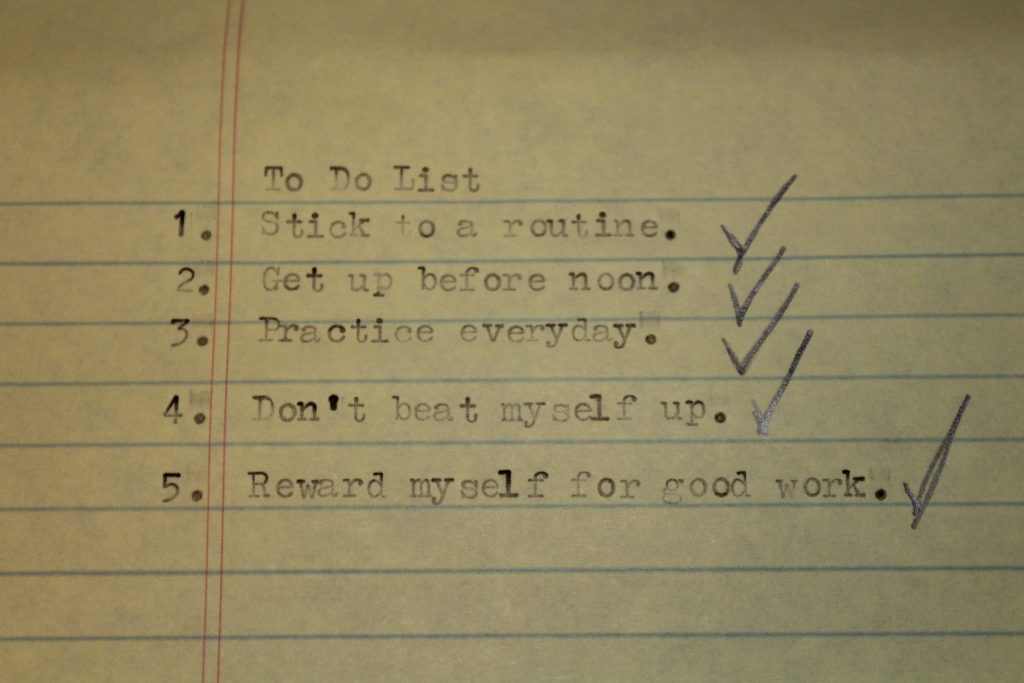
If you’ve attended SCAD for a full round of fall, winter and spring quarters, you know that the time to finally rest and put your mind at ease is at the start of summer vacation. The rapid fire volley of classes after winter quarter and the small break in between that and the spring means that this is the first time in several months that you can truly relax.
However, one thing you don’t want to do, as a student and an artist, is let yourself become rusty and complacent. So, to fight off laziness this summer, here are a few tips to stay productive and keep your stride going so you don’t find yourself brain-dead by the time fall rolls back around.
Stick to a routine
Set up a basic routine to start your day and then follow that to the best of your ability. If you are working over the summer, use that schedule as a way to plan out the rest of your day. Try to get something done before you head to work or hangout with your friends. The more you stick to a routine the easier it will be to acclimate to your class schedule when the time comes.
Get up before noon
For college students, it is usually safe to say that they will sleep in past noon if they have the opportunity. Don’t be one of those people. Wake up before noon and use the extra daylight to get your affairs in order before work, a day at the beach or a night out on the town destroying brain-cells. By keeping your sleep cycle consistent, you will have an easier time getting up for classes and you will have more time to accomplish things before your degenerate friends even roll out of bed.
Practice your craft everyday
As a part of your routine, make time to practice whatever it is you’re focusing on. Start slow and then incrementally increase the amount of time you practice as you go. If you are a writer, write for 15 minutes a day, then shoot for a half hour after a few weeks. If you are an illustrator, try sketching for 15 minutes a day, and so on.
If you aren’t concerned with time, aim for completing a full sketch, or writing one full page everyday and see how much you can manage after a few weeks of consistently doing this. Most people don’t want to acknowledge that daily practice is necessary because of how daunting it sounds, but the more you do it the easier it will become. That practice will also make the difference between someone who is ready to break records in the major leagues and someone who does it as a hobby.
Don’t beat yourself up
If you slip and don’t follow your routine, or wake up too late and forget to practice, don’t beat yourself up to the point that you don’t want to continue at all. We are all human and we make mistakes. Discipline is difficult to achieve and you shouldn’t feel bad if you hit a few bumps along the way. Tomorrow is another day, so get back up and try again in the morning.
Reward yourself
Use rewards as an incentive to motivate your productivity. Take whatever you enjoy doing the most on your off-time and use that as a carrot at the end of the stick for when you finish getting things done. If you have that reward waiting for you at the end, not only will you have the satisfaction of setting a goal and then meeting that goal, but you will also have a nice self-indulgent reward waiting for you as well.
The aim here is not to burn yourself out, but to keep yourself in check so you don’t lose all of the progress made previously. It is important to relax, but relaxing too much might leave you unprepared for the challenges you will have to face when school and other real world obligations come knocking in the fall.



























